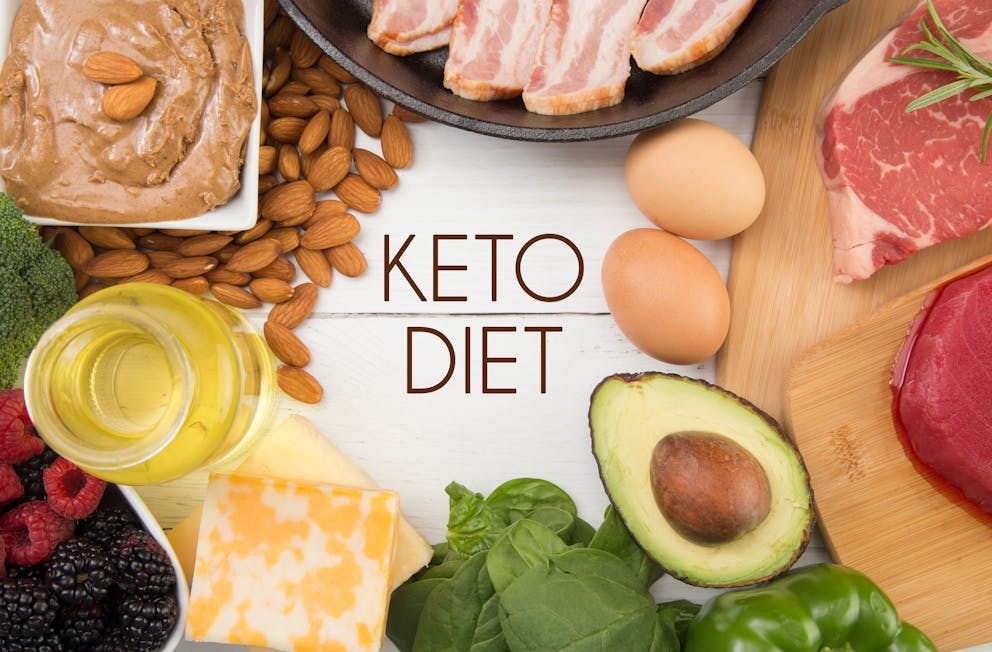How Many Carbs in Popcorn
Popcorn. It's the go-to snack for movie nights, Netflix binges, and those I-need-something-crunchy moments. But here's the thing: not all popcorn is created equal when it comes to carb content. Some types might just surprise you.
So, let's talk numbers. A typical serving of air-popped popcorn (about 3 cups) packs around 18 grams of carbs. Not too shabby, right? But wait, there's more. Microwave popcorn? That same serving size can bump the carb count up to 21 grams.
And movie theater popcorn? Brace yourself. A small bucket can pack a whopping 30 grams of carbs or more.
But before you swear off popcorn forever, hear me out. There's a silver lining to this carb cloud. Popcorn is actually a whole grain, and it's loaded with fiber.
That means it can actually help you feel full and satisfied, making it a smart snack choice when the munchies hit.
Popcorn and the Keto Diet: A Comprehensive Guide
If you're following a ketogenic diet, you may be wondering if popcorn can fit into your low-carb lifestyle. While popcorn is often considered a healthy snack option, its carb content can vary depending on how it's prepared.
In this comprehensive guide, we'll explore the compatibility of popcorn with the keto diet, breaking down the net carb content of different types of popcorn and offering alternatives for those on strict carb limits.

Understanding Net Carbs in Popcorn
It's essential to understand the concept of net carbs in relation to the keto diet. Net carbs are calculated by subtracting the amount of fiber from the total carbohydrates in a food serving.
According to the USDA FoodData Central, a 3-cup serving of air-popped popcorn contains approximately 18 grams of total carbs and 4 grams of fiber, resulting in 14 grams of net carbs.
In comparison, a 3-cup serving of microwave popcorn can have up to 21 grams of net carbs, depending on the brand and flavor.
Navigating the Keto Diet with Popcorn
To stay in ketosis, most people aim to consume no more than 20-50 grams of net carbs per day.
With 14 grams of net carbs in a 3-cup serving of air-popped popcorn, it's possible to incorporate this snack into your keto diet, but it's crucial to be mindful of portion sizes and track your overall carb intake.
One strategy for enjoying popcorn on a keto diet is to limit your serving size to 1-2 cups and pair it with high-fat, low-carb toppings like melted butter, olive oil, or a sprinkle of nutritional yeast.
This can help you feel more satisfied while keeping your carb intake in check.
Keto-Friendly Popcorn Alternatives
If you're following a strict keto diet or find it challenging to fit popcorn into your daily carb allowance, there are several low-carb snack alternatives to consider:
Pork rinds: These crispy, savory snacks are made from pork skin and contain zero carbs.
Cheese crisps: Made from baked or fried cheese, these crunchy snacks are high in fat and protein, with minimal carbs.
Nuts and seeds: Options like almonds, macadamia nuts, and pumpkin seeds are rich in healthy fats and fiber, making them a satisfying, low-carb snack choice.
By exploring these keto-friendly alternatives, you can satisfy your cravings for crunchy, savory snacks without derailing your low-carb diet.
Nutritional Profile of Popcorn
While popcorn's compatibility with the keto diet is a primary concern for many, it's essential to recognize the numerous nutritional benefits this whole grain snack offers.
Beyond its carb content, popcorn is a good source of fiber and essential nutrients that can contribute to overall health.
The Fiber Factor
One of popcorn's most notable nutritional aspects is its high fiber content. A 3-cup serving of air-popped popcorn provides approximately 4 grams of dietary fiber, which is roughly 16% of the daily recommended intake for adults.
Fiber is crucial for maintaining digestive health, promoting regular bowel movements, and supporting the growth of beneficial gut bacteria.
Additionally, consuming adequate fiber can help you feel full and satisfied, which may aid in weight management by reducing overall calorie intake.
Popcorn's Essential Nutrients and Health Benefits
In addition to fiber, popcorn contains an array of essential vitamins and minerals. According to the USDA FoodData Central, a 3-cup serving of air-popped popcorn provides:
Manganese: 12% of the Daily Value (DV)
Magnesium: 9% of the DV
Phosphorus: 9% of the DV
Zinc: 6% of the DV
These nutrients play vital roles in various bodily functions, from supporting bone health to aiding in energy production and immune function.
Furthermore, popcorn is rich in antioxidants, such as polyphenols, which help protect cells from damage caused by free radicals and may lower the risk of certain chronic diseases.
Choosing the Right Popcorn for Your Diet
When incorporating popcorn into your diet, it's essential to consider the various types available and their nutritional differences.
From air-popped to microwave and movie theater popcorn, each variety has unique characteristics that can impact your health and dietary goals.
Air-Popped vs. Microwave Popcorn
Air-popped popcorn is often considered the healthiest option, as it is made without added oils or fats. A 3-cup serving of air-popped popcorn contains approximately 90 calories, 1 gram of fat, and 18 grams of total carbs, with 4 grams of fiber.
In contrast, microwave popcorn can be higher in calories, fat, and sodium, depending on the brand and flavor. A 3-cup serving of microwave popcorn can contain up to 150 calories, 10 grams of fat, and 21 grams of total carbs, with 3 grams of fiber.
When choosing microwave popcorn, opt for varieties with minimal added ingredients and lower fat content.
The Truth About Movie Theater Popcorn
Movie theater popcorn is often the least healthy option due to its high calorie, fat, and sodium content.
A medium-sized movie theater popcorn can contain upwards of 1,000 calories, 60 grams of fat, and 1,500 milligrams of sodium, making it a less-than-ideal choice for those following a proper diet.
If you enjoy the taste of movie theater popcorn, consider making a healthier version at home using air-popped popcorn and a small amount of butter or olive oil for flavor.
Pre-Popped Popcorn Options
Pre-popped popcorn products offer convenience but can vary greatly in their nutritional value. When selecting pre-popped popcorn, read labels carefully and choose varieties with minimal added ingredients, lower calorie counts, and reduced fat content.
Some healthier pre-popped popcorn options include brands like Skinny Pop, Boom Chicka Pop, and Angie's Boomchickapop, which offer a range of flavors with more modest calorie and fat levels compared to traditional pre-popped varieties.
Incorporating Popcorn into a Healthy Lifestyle
To enjoy popcorn as part of a proper diet, it's important to practice portion control, choose healthy toppings, and pair your snack with regular physical activity.
By implementing these strategies, you can savor the taste and nutritional benefits of popcorn without compromising your health goals.
Smart Snacking Strategies
One key to incorporating popcorn into a healthy lifestyle is to be mindful of portion sizes. A single serving of popcorn is typically 3 cups, which contains approximately 90 calories when air-popped.
To avoid overeating, measure out your portions and avoid eating directly from the bag or container.
Another smart snacking strategy is to choose healthier popcorn options, such as air-popped or lightly seasoned varieties, over heavily buttered or flavored options.
By making informed choices, you can enjoy the taste and texture of popcorn without consuming excessive calories or unhealthy additives.
Enhancing Popcorn with Healthy Toppings
To boost the flavor and nutritional value of your popcorn, consider experimenting with healthy toppings. Some delicious and nutritious options include:
Nutritional yeast: This deactivated yeast is a great source of B vitamins and offers a cheesy, savory flavor.
Herbs and spices: Sprinkle your popcorn with chili powder, garlic powder, or Italian seasoning for a flavorful, low-calorie kick.
Olive oil and sea salt: Drizzle a small amount of olive oil and sprinkle with sea salt for a classic, satisfying taste.
By getting creative with healthy toppings, you can enjoy a delicious and satisfying snack that aligns with your nutritional goals.

Kernel Confessions
Dive into the surprising truth behind the carb content of everyone's favorite snack. While popcorn is often considered a low-calorie treat, its carbohydrate content may come as a revelation to those following a ketogenic diet.
This informative exploration uncovers the hidden carbs lurking within popcorn kernels and sheds light on how they can impact ketosis.
Amidst this discussion, the delicious option of Keto Popcorn Chicken emerges as a savory alternative that aligns with the principles of the ketogenic lifestyle.
By opting for this flavorful dish, individuals can indulge in a satisfying snack without compromising their dietary goals, creating a winning com
Conclusion
So, what's the verdict on the carb content of popcorn? It all comes down to how you pop it and what you put on it.
Air-popped is the way to go if you're watching your carb intake, but even microwave and movie theater popcorn can fit into a proper diet when enjoyed in moderation.
The key is to be mindful of portion sizes and to watch out for added sugars and unhealthy fats that can sneak into some varieties. With a little popcorn savvy, you can enjoy this classic snack without derailing your healthy eating goals.
So, the next time you reach for a bag of popcorn, remember: not all kernels are created equal, but they can all have a place in your snack rotation. Just keep an eye on those carb counts and enjoy the crunchy goodness!
Previous blog
What to Do If You Have Double DiabetesNext blog
Body Fat and GeneticsTags

Popular
08/31/2023
12.2K views
08/31/2023
14.9K views
08/31/2023
147.7K views
03/18/2024
11/21/2022




